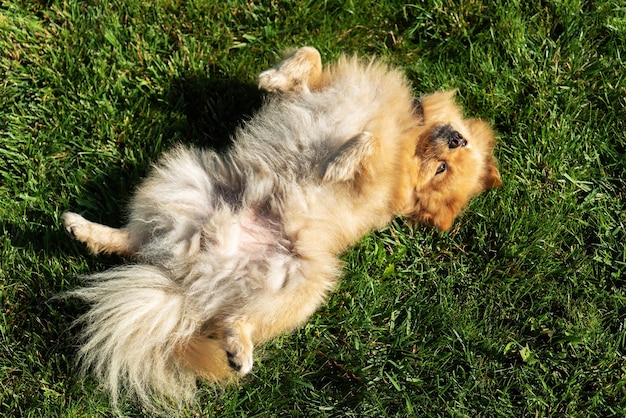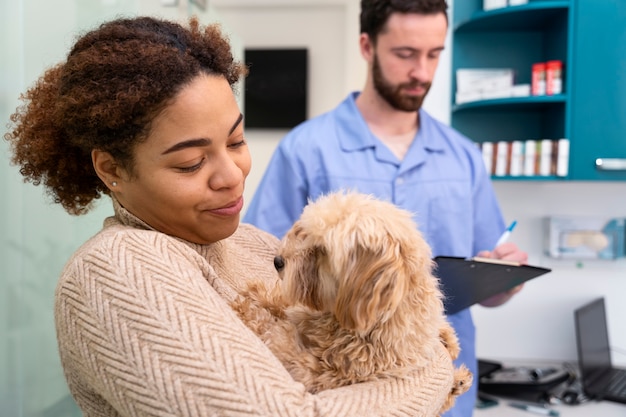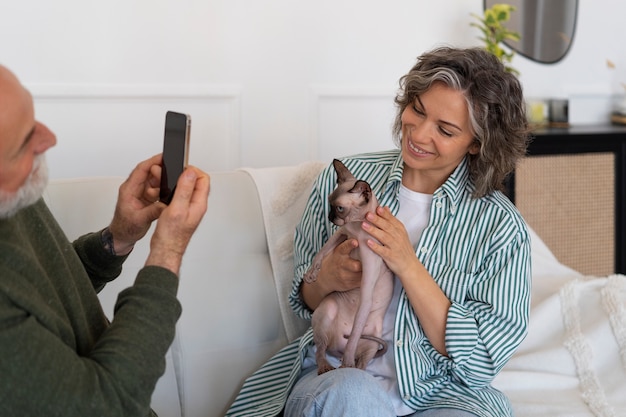Keeping Pets Comfortable During Indiana’s August Heat


Keeping Pets Comfortable During Indiana’s August Heat
Indiana’s August heat can be harsh on everyone, especially our pets. As temperatures rise in Fishers and the surrounding communities, pet owners often find themselves worrying about their furry family members’ comfort and safety. Whether you are walking your dog at sunrise or watching your cat lounge in a sunny window, the summer sun can quickly transform into a serious health concern. At Pet Vet Animal Hospital, located at 14065 Mundy Dr, Fishers, IN 46038, we understand how important it is to keep pets cool, hydrated, and happy during Indiana’s hottest months. This guide will walk you through expert pet heat safety tips, signs of heat-related distress, steps for preventing pet heatstroke, and when to seek veterinary care. We will also highlight how our nutritional counseling for pets in Fishers can support hydration and health during the summer. If you have been searching for the best veterinarian near me or quality vet near me, our team is here to help you navigate pet safety all season long.
Recognizing Signs of Heat Stress in Pets
Understanding when your pet is struggling with the summer heat is essential. Dogs and cats do not sweat like humans; instead, they rely on panting and limited sweat glands in their paws to release heat. This means they are more susceptible to overheating, especially during the late summer when humidity and temperature peak in Fishers.
Key symptoms of heat stress in pets include excessive panting that does not resolve quickly, drooling, mild weakness or lethargy, and a noticeable reluctance to move. In some cases, you may observe your pet seeking out cool surfaces, acting restless, or appearing confused. As heat exposure increases, more severe signs such as vomiting, diarrhea, uncoordinated movement, or even collapse can occur. Cats may hide or become unusually vocal, while dogs might become anxious or agitated. If you notice any of these symptoms, it is important to intervene immediately to prevent escalation toward heatstroke.
Why Pets Are at Risk During Indiana’s August Heat
The combination of high temperatures and humidity in Indiana during August creates the perfect environment for heat-related illnesses in pets. Unlike people, pets cannot remove layers or sweat effectively, making them more vulnerable to rising temperatures. Factors that increase the risk for pets include being left outdoors for extended periods, limited access to shade or water, and certain health conditions like obesity, heart disease, or respiratory issues. Brachycephalic breeds such as Bulldogs, Pugs, and Persian cats are especially sensitive to heat due to their short noses and compromised airways.
Environmental conditions in Fishers, such as heat radiating from concrete sidewalks and lack of breeze in shaded backyards, can also contribute to a pet’s overheating. Even a quick ride in a parked car—regardless of whether the windows are cracked—can rapidly become life-threatening. Additionally, pets with dark or thick coats absorb more heat, increasing their susceptibility to heat-related stress.
Professional Treatment and Management for Heat-Related Illness
If you suspect your pet is experiencing heatstroke or severe heat stress, immediate action is necessary. Move your pet to a cool, shaded area right away and offer small amounts of cool (not cold) water to help lower their body temperature. Wetting their paws and belly with a damp cloth can also aid in cooling, but avoid using ice or extremely cold water, as rapid temperature changes can be harmful.
When you bring your pet to Pet Vet Animal Hospital for heat-related concerns, our veterinarians will perform a comprehensive assessment to check vital signs, hydration status, and organ function. Diagnostic tools may include blood tests to evaluate for dehydration and complications such as kidney injury. Treatment approaches involve gradual cooling, intravenous fluids for rehydration, and monitoring for secondary issues like organ dysfunction or neurological symptoms. Each case is handled with compassion and urgency, as timely intervention is critical for recovery.
Our team also provides guidance on home care after a heat episode and can discuss underlying health conditions that might make your pet more prone to heatstroke. For pets with chronic health concerns or those at higher risk, we may recommend a wellness examination before the hottest part of summer to ensure they are in optimal health heading into the season.
Actionable Prevention Tips for Keeping Pets Cool and Safe
Prevention is the most reliable way to keep pets comfortable during Fishers’ August heat. Always ensure your pet has access to fresh, clean water and plenty of shade when spending time outdoors. Walk dogs early in the morning or later in the evening when temperatures are lower. On especially hot days, limit outdoor activity altogether and focus on indoor enrichment to keep your pet stimulated without the risk of overheating.
For cats, close blinds or curtains to block out the strongest sunlight and set up cool resting spots with fans or air conditioning. Never leave pets unattended in vehicles or sun-exposed spaces, even for a short time. Monitor the pavement temperature with your hand before walking your dog; if it feels too hot for you, it is too hot for your pet’s paws.
Supporting your pet’s health through proper nutrition and hydration is essential. Our nutritional counseling services in Fishers can help you select diets that promote water intake and overall wellness, especially for pets prone to dehydration or with special dietary needs. Consider using pet-safe ice cubes or frozen treats as a fun way to encourage hydration during the hottest parts of the day.
When to Seek Veterinary Care for Heat-Related Concerns
Knowing when to call your veterinarian is vital for your pet’s safety. If your pet shows any signs of heatstroke—such as collapse, unresponsiveness, vomiting, or seizures—seek immediate veterinary care. Time is critical in these situations, as untreated heatstroke can quickly lead to permanent organ damage or even be fatal.
Even if your pet recovers quickly from a mild episode of overheating, it is still a good idea to schedule an appointment for a veterinary evaluation. Subtle complications from heat exposure may not appear right away and can affect your pet’s long-term health. Our veterinary professionals at Pet Vet Animal Hospital are experienced in identifying and treating heat-related illnesses, ensuring your pet receives the best possible care.
Regular preventive care, including wellness exams and pet vaccination services, helps reduce the risk of summer infections and keeps your pet’s immune system strong. By choosing a quality vet near me, you are taking a proactive step toward your pet’s overall well-being, especially during challenging weather conditions in Fishers.
Supporting Pet Heat Safety in Fishers and Surrounding Communities
Keeping pets safe and comfortable during Indiana’s August heat is a shared responsibility between pet owners and veterinary teams. By recognizing early signs of heat stress, understanding the unique risks our local climate presents, and following expert pet heat safety tips, you can make summer a safe and enjoyable season for your furry companions. Remember, pet heat safety tips in Fishers include ensuring constant access to water, limiting outdoor activity, and scheduling routine checkups with a veterinarian near me.
If you have questions about your pet’s risk of heatstroke or want personalized advice for preventing pet heatstroke in Fishers, our veterinary team is here to help. To schedule an appointment, call (317) 792-8919 or visit us at 14065 Mundy Dr, Fishers, IN 46038. Our veterinarians are committed to serving Fishers and surrounding communities with compassionate, knowledgeable care. For more information about all our services, visit our comprehensive veterinary care page.
Your pet’s comfort and safety matter throughout every season. Let our team at Pet Vet Animal Hospital be your partner in keeping your companion healthy, happy, and protected from the summer heat.



















